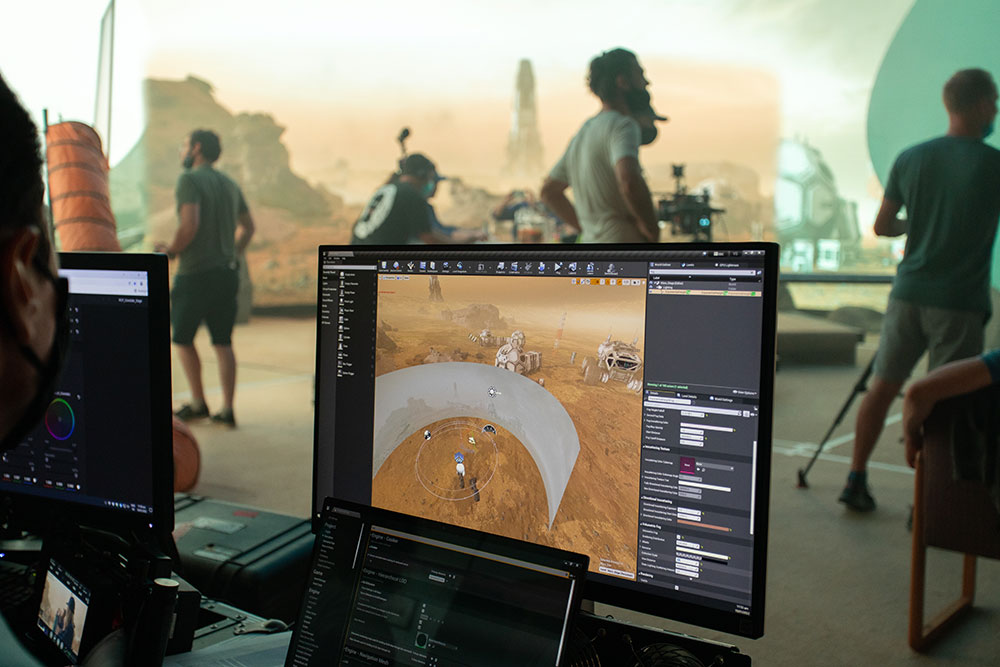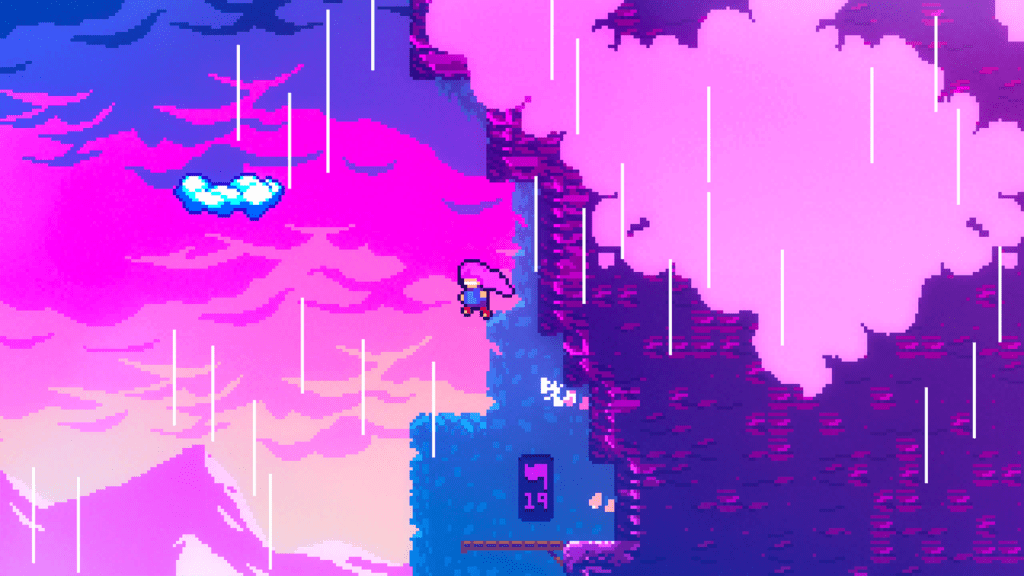Considering a career in the tech world? You’ve probably thought about game development or web development. Both offer exciting opportunities, potential for creativity, and a chance to build a fulfilling career.
But which path is right for you? Both fields have their unique demands, rewards, and entry points. This article will provide a comprehensive comparison of the two, from the skills you’ll need to the current job market landscape.
We’ll talk about the specifics of each career and ultimately help you make an informed decision about which path best aligns with your own passions, goals, and aspirations!
Game development or web development: key differences
To make an informed decision about game development or web development, it’s essential to understand the core differences between them. Let’s tackle each at a time:
Skills and knowledge for game development

At the core, game development requires strong programming skills, with C++ and C# being the favorites for high-performance games. Python and Lua are minor but important languages mostly used for tools and scripting.
Understanding core mathematical concepts, including linear algebra, trigonometry, and physics, will be useful when designing game mechanics, handling physics simulations, and manipulating 3D environments.
Proficiency with at least one major game engine, such as Unity or Unreal Engine, is essential. This requires not only the ability to write code within the engine but also proficiency in the engine’s asset management and debugging systems.
Understanding graphics and rendering principles – how 3D models are displayed, how light interacts with objects, how shaders work – is vital for creating visually impressive games. Beyond the purely technical, game development often demands strong problem-solving skills – debugging code, finding creative solutions to technical challenges, and adapting to changing requirements.
A degree of creativity, coupled with a strong passion for games and good teamworking skills, is almost a must-have. Finally, resilience is necessary – games are notoriously buggy, and long hours are often needed to squash them all.
Skills and knowledge for web development

In contrast, web development prioritizes a broader skillset focused on building functional and user-friendly web applications. While strong programming abilities are, of course, essential, the emphasis is on different languages.
JavaScript, as the language of the web, is absolutely fundamental for front-end interactivity and increasingly for back-end development with frameworks like Node.js. You’ll also need to learn HTML and CSS, the backbone of web page structure and styling.
Proficiency in a range of frameworks and libraries, such as React, Angular, or Vue.js, is almost universally needed for modern web development, enabling the efficient creation of complex web interfaces.
You’ll need some understanding of databases and server-side technologies (e.g., Ruby, Node.js, and associated frameworks) to manage data and build web applications.
Knowing how to interact with APIs (Application Programming Interfaces) is another important skill. Version control (using Git) and familiarity with web application security best practices are also standard requirements.
Beyond technical skills, web developers often need to possess a user-focused mindset, prioritizing user experience (UX) and designing applications that are both functional and easy to use. Effective communication skills are often vital, too, as you’ll often be building something in collaboration with designers and developers.
Game development: career paths and job market

In the gaming industry, there are many job environments: big, established game studios like EA and Nintendo, as well as thousands of smaller, indie game studios and mobile game powerhouses.
The types of jobs are equally varied. Programmers are always in demand, especially with specializations in areas like gameplay, engine design, cutting-edge graphics, and the now-important world of artificial intelligence (AI).
Then you’ve got the designers pouring thoughts into levels, mechanics, and the very systems that make a game fun. Artists, from 3D modelers to 2D illustrators and technical artists, are needed to bring visual flair to life. Producers are the project managers, keeping everything on track, and quality assurance (QA) testers are the ones standing between a bug-free experience and Cyberpunk 2077’s release.
So, how’s the job market? Fiercely competitive. Also, while there’s always a hunger for skilled developers, particularly programmers, the industry often clusters in specific geographical hotspots, like California, Montreal, and certain cities in Europe. Contract work and freelance gigs are also relatively common.
Salaries can be fantastic for those with the right skills and experience, though the industry can also be volatile. Project success or failure can have a direct impact on job security, so it’s worth taking that into account.
Web development: career paths and job market

In contrast, web development skills are a relatively universal language. Every industry needs web developers, from tech companies and new startups to established e-commerce giants, government agencies, and non-profits. The demand is broad and the opportunities vast.
The job titles are also many and varied. You might be a front-end developer, focused on the user interface and user experience; a back-end developer, working on the server-side systems and databases that power web apps; or a full-stack developer who does it all!
Other roles include web designers, DevOps engineers who keep everything running smoothly, and specialists in web application security.
What’s the job market like? Strong – and it offers a lot of options. Compared to the gaming world, the web dev job market is generally more stable and less prone to the ups and downs of individual projects. Remote work is also much more prevalent.
Salaries are generally excellent, with good growth potential, especially if you have skills in high-demand frameworks and technologies. The salary volatility is often lower, too, making it a great field if you value consistency.
Game development or web development: which one is right for you?

So, you’re at the crossroads: game development or web development? There’s no one-size-fits-all answer – because the right path depends entirely on you. To truly decide, you need to get real with yourself and consider what you want.
Start by asking yourself: what genuinely excites you? Does the idea of designing virtual worlds set your imagination alight? Or are you more drawn to the challenge of building practical, user-friendly web applications? Passion will be the fuel that keeps you going even when things get hard.
Think about your work style, too. Do you thrive in collaborative team settings, the norm in many game studios? Or would you prefer the added freedom web development can provide?
Then, what about your long-term ambitions? Are you dreaming of leading the creative charge at a game studio, designing and managing the next big hit? Or do you see yourself building impactful web apps that solve real-world problems?
Your learning style also matters. How do you learn best? Self-directed learning is frequently accessible for web development (bootcamps and online courses are everywhere). Game development may benefit from more structured education or skill development focused on a specific engine.
Finally, consider your risk tolerance. Are you comfortable with the project-based nature and volatility of the game development job market? Or does the greater stability of web development appeal more?
In any case, before committing, experiment by trying some small projects in both fields. Build a simple website, interact with web APIs, take a basic game tutorial in a game engine, or try developing a simple game clone. A little hands-on experience can make all the difference.

Closing thoughts
Game development and web development both present awesome opportunities to build a tech career. It’s great that the core ingredients (coding prowess, a knack for solving problems, and the ability to think creatively) are utilized in both fields, with the main difference being their focus.
There’s no one “best” choice. In the end, success depends on what ignites your passions and aligns with your ambitions – the path is yours to forge!
Now, at Main Leaf, we’re passionate about all things game development, from concept to completion. That’s why we’re here for you. Need a seasoned partner to build your dream game or a trusted outsourcing partner? Contact us today, and let’s explore how we can collaborate and take your game’s design and user experience to the next level!

